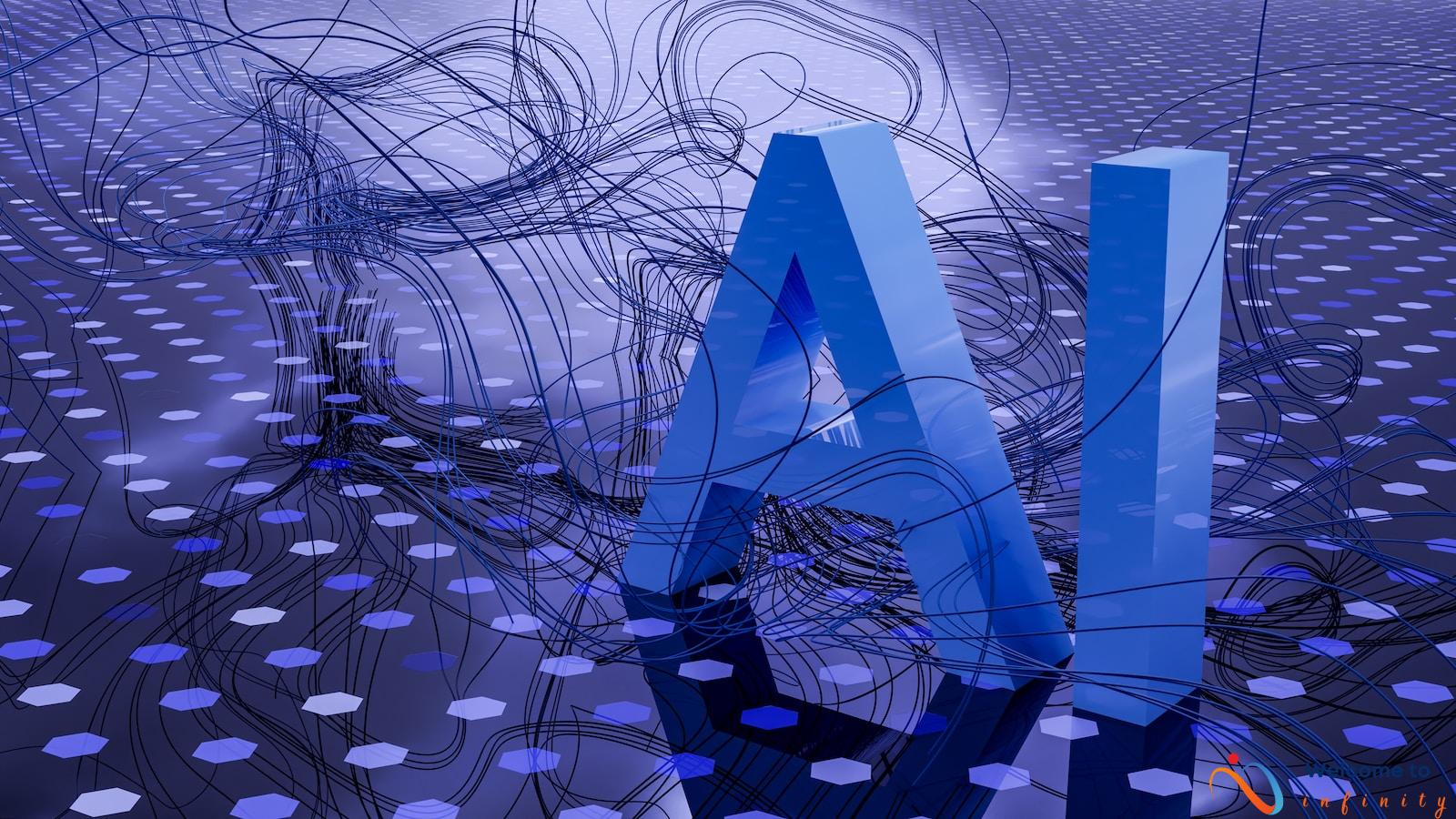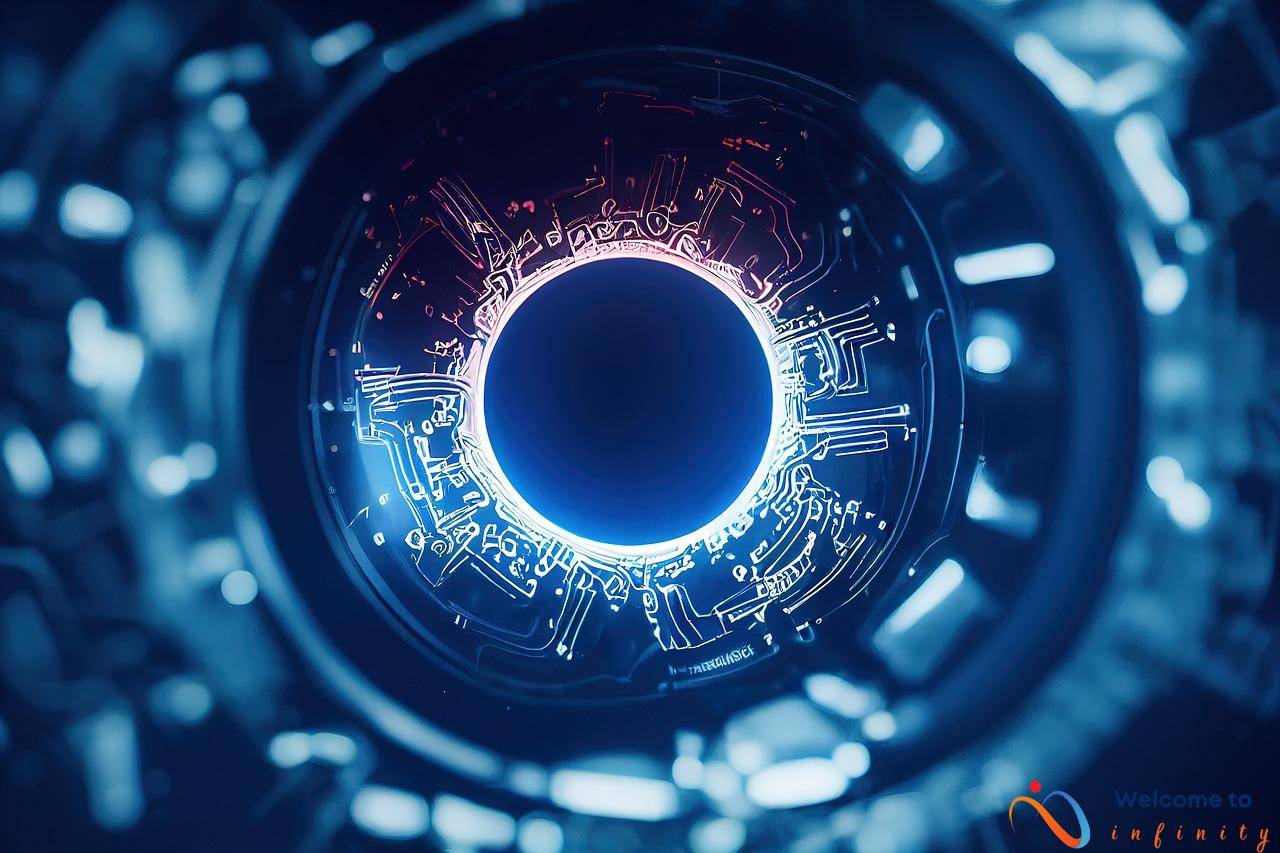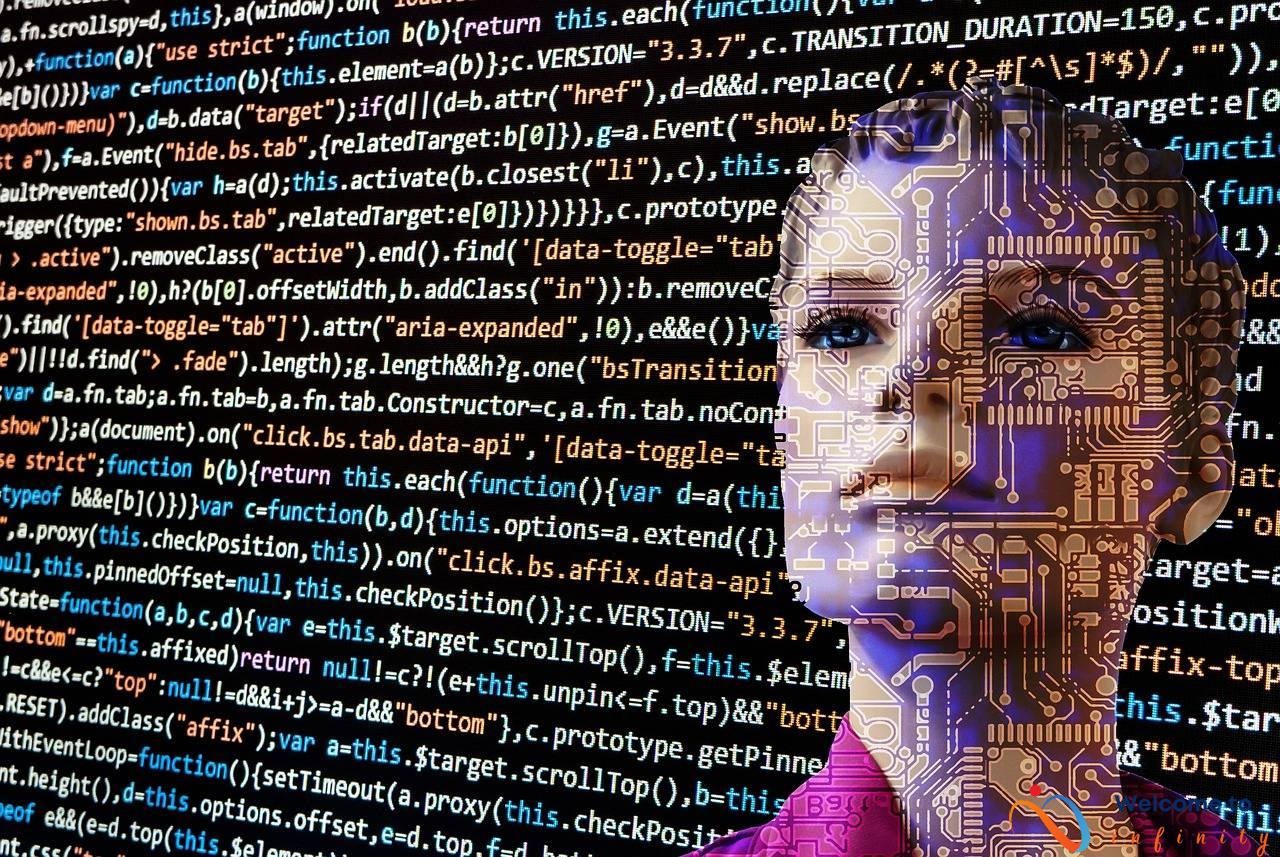Artificial intelligence, or AI, is no longer a concept found solely in science fiction stories. AI has become increasingly prevalent in our daily lives, from virtual personal assistants like Siri and Alexa to self-driving cars. As AI technologies continue to advance and grow, their impact on society has likewise become more profound and far-reaching.
This article will explore the ways in which AI is shaping society and the future of our world. From its impact on the job market and healthcare to privacy and education, we will examine the many ways in which AI is transforming our lives.
One of the most significant ways in which AI is changing society is through its impact on the job market. As AI technology grows more advanced, many jobs that were once done by humans are now being done by machines. For example, chatbots are becoming increasingly common in customer service, replacing human customer service representatives. While AI has the potential to create new jobs, it's also causing concern about job displacement and the need for retraining and reskilling of the workforce.
AI is also poised to transform healthcare. Already, AI is being used to improve diagnosis and treatment, by analyzing vast amounts of medical data and identifying patterns that humans might miss. In the future, AI technology could make healthcare more efficient, saving both time and money. However, there are ethical considerations to be aware of when it comes to using AI in healthcare, such as the risk of introducing bias into AI algorithms.
AI's impact on privacy is another area of concern. As AI continues to advance, it has the potential to collect and analyze vast amounts of personal data, which raises questions about data security and privacy. Governments, organizations, and individuals alike need to work to ensure that personal data is protected from misuse.
In conclusion, the impact of AI on society is far-reaching and has the potential to change our lives in profound ways. As we move into the future, it's important to consider the benefits and challenges that AI presents and to work together to ensure a positive and equitable future for all.
AI and the Job Market
Artificial intelligence is rapidly advancing and has the potential to replace many of the jobs currently done by humans. As AI technology continues to evolve, the job market is changing to adapt to these advancements. While some jobs will become obsolete, AI is also creating new job opportunities in fields such as data analysis, programming, and machine learning.
AI can also make certain tasks easier and more efficient for humans, allowing them to focus on higher-level thinking and problem-solving. For example, AI can be used to automate administrative tasks like scheduling and data entry, freeing up employees' time and energy for more complex tasks.
However, the increasing automation of jobs by AI has also raised concerns about job displacement and job security. Many traditional jobs may become obsolete as AI takes over certain tasks, leaving many workers without employment opportunities. It is important for society to consider how to prepare and retrain workers for the future job market in the age of AI.
- According to a report by PwC, up to 30% of jobs in the UK may be at risk of automation by the early 2030s.
- Jobs that are most at risk of automation include those in routine and manual work such as cashiers, factory workers, and data entry clerks.
- However, jobs that require creativity, problem-solving, and emotional intelligence such as healthcare workers, teachers, and social workers are less likely to be automated.
It is important for individuals and organizations to stay up to date with the latest advancements in AI and how they will affect the job market. While AI has the potential to create new opportunities, it is important to ensure that the benefits of these technologies are shared fairly and equitably.
AI and Healthcare
Artificial intelligence (AI) is transforming the healthcare industry in numerous ways. One of the main benefits of AI in healthcare is improved diagnosis and treatment. AI has the potential to analyze vast amounts of medical data quickly and accurately, enabling healthcare professionals to make more informed decisions about patient care.
Another way in which AI is revolutionizing healthcare is by making it more efficient. AI-powered tools can automate many healthcare tasks, such as appointment scheduling and billing, freeing up healthcare professionals to focus on patient care.
AI is also changing the way healthcare is delivered. Virtual healthcare assistants, powered by AI, are already being used to provide patients with personalized medical advice, and the technology has the potential to transform the entire healthcare experience, from diagnosis to treatment.
However, the use of AI in healthcare also raises ethical concerns. For example, there is the risk that biased algorithms could lead to unequal treatment for certain patient groups. It is important that healthcare organizations take steps to mitigate these risks and ensure that the benefits of AI are realized in a way that is fair and equitable.
In summary, AI has the potential to transform the healthcare industry by making diagnosis and treatment more accurate, improving efficiency, and delivering a more personalized experience for patients. However, as with any technology, there are ethical considerations to be aware of. It is essential that healthcare organizations proceed with caution and prioritize patient safety and well-being when implementing AI-powered tools.
The Ethics of AI in Healthcare
Artificial intelligence has the potential to revolutionize healthcare in many ways. However, with any new technology, there come ethical considerations that must be taken into account. While there is no easy answer to the ethical issues surrounding AI in healthcare, it is essential to be aware of the potential risks and benefits of using AI in medical settings.
One of the main ethical concerns surrounding AI in healthcare is bias. While machines may be able to process massive amounts of data, the algorithms they use are only as good as the data they are trained on. If that data is biased in any way, AI algorithms can perpetuate and even amplify those biases, leading to unfair treatment of certain patients.
Another ethical consideration is the role of human empathy in healthcare. While machines can analyze data and come up with treatment plans, they lack the ability to provide emotional support and care to patients. This can lead to patients feeling neglected or even mistreated if they feel that their care is being handled solely by machines.
Additionally, there are concerns around the potential for AI to replace human medical professionals. While AI can assist in diagnosis and treatment, it cannot replace the expertise and experience of trained medical professionals. It is essential to strike a balance between the benefits of increased efficiency and accuracy and preserving the human touch that is so critical to quality healthcare.
In conclusion, AI offers many benefits to the healthcare industry, but it is imperative that we approach these developments with an understanding of the ethical considerations involved. By striking a balance between the use of technology and the need for human empathy and expertise, we can ensure that AI is used to improve healthcare outcomes while also promoting ethical practices and patient safety.
The Question of Bias
One major ethical concern related to AI in healthcare is the introduction of bias into AI algorithms. Bias can result from a variety of factors, including the data used to train the algorithm and the values and beliefs of the individuals who design and train the algorithm.
If an AI algorithm introduces bias into healthcare decisions, it could lead to serious consequences for patients. For example, if an algorithm is designed to prioritize patients with certain characteristics, such as race or gender, it may lead to unequal treatment. Similarly, if an algorithm is trained on a biased dataset, it may be less accurate in diagnosing and treating certain conditions in certain populations.
To prevent bias in AI healthcare algorithms, it is crucial to ensure that datasets used to train the algorithms are representative of diverse populations. Additionally, regular audits of algorithms can be conducted to identify and correct any biases that may have been introduced.
It is also important to note that AI algorithms should not be solely relied upon in healthcare decision-making. Human input and oversight are essential to ensuring that decisions made by AI algorithms are ethical and align with the values of society. By being aware of the potential for bias and taking appropriate steps to prevent it, we can ensure that AI healthcare technologies contribute positively to society.
The Role of Human Empathy
As AI advances, it has the potential to revolutionize healthcare by improving diagnosis accuracy, offering more personalized treatment, and streamlining administrative processes. However, despite the numerous advantages that AI has to offer, there are still limitations to what machines can do. Human empathy plays a crucial role in delivering quality healthcare that goes beyond mere diagnosis and treatment.
While AI-based systems can gather and analyze vast amounts of data to identify diseases and recommend treatments, they lack the human touch that is essential in healthcare. Empathy, kindness, and compassion are necessary in establishing a human connection that makes the patient feel seen and heard. Patients want to feel understood, safe, and respected, which is where the role of healthcare workers that provide emotional support becomes important.
Moreover, human empathy is also essential in bridging the communication gap that still exists between patients and AI-based healthcare systems. Many people are not tech-savvy, or they are too intimidated to use AI-based healthcare services. Healthcare workers can intervene and translate the information provided by these systems in a way that is easily understandable for patients, therefore facilitating their engagement with healthcare technology.
While AI brings tremendous benefits to the healthcare sector, it is important to recognize the value of human interaction in delivering high-quality healthcare. A balance between technological advancements and human touch is necessary, as one cannot replace the other. By recognizing and valuing the importance of human empathy in healthcare, we can ensure that AI is used to its full potential while also delivering the personal touch that is needed to make the healthcare experience more humanizing and empowering.
AI and Privacy
With the increasing sophistication of AI technology, there is a growing concern about the amount of personal data that can be collected and analyzed. AI has the ability to gather vast amounts of information about individuals, including their location, behavior, and preferences. This raises serious questions about privacy and security, and the potential for this data to be misused or exploited.
One of the key implications of AI for privacy is the potential for personal data to be shared or sold to third parties without the individual's consent. This could result in targeted advertising or even identity theft. In addition, AI could be used to create detailed profiles of individuals, including their medical history, financial information, and social connections. This information could be used to make decisions about individuals, including whether they are eligible for credit, insurance, or employment.
The issue of privacy and AI is particularly complex because the technology is still relatively new, and there are few regulations governing its use. As a result, there is a need for individuals and organizations to take proactive steps to protect personal data. This might include using encryption software, investing in secure storage solutions, and limiting the amount of information shared online.
- Use encryption software to protect sensitive information
- Invest in secure storage solutions to prevent data breaches
- Limit the amount of personal information shared on social media and other websites
At the same time, there is a need for regulations to be put in place to protect personal data from misuse. This might include laws that require companies to obtain consent before collecting personal data, or that limit the ways in which this data can be used. In addition, there is a need for greater transparency around the use of AI, including how data is collected, analyzed, and shared.
Overall, the development of AI has significant implications for privacy and security. While there are clear benefits to this technology, including improved healthcare, education, and job opportunities, there is also a need for individuals and organizations to take proactive steps to protect personal data. In addition, there is a need for regulations to be put in place to safeguard privacy and ensure that the benefits of AI are spread equitably across society.
Protecting Personal Data
With AI's ability to collect and analyze vast amounts of personal data, it raises concerns about privacy and security. Ensuring that personal data is kept secure is essential in the age of AI. In response to this concern, numerous individuals and organizations are taking steps to safeguard personal data.
- Encryption: Encryption is one of the most powerful techniques for protecting personal data. By encrypting data, it becomes unreadable, and only those who have the encryption key can access it. Many organizations are now making use of encryption to ensure that sensitive data remains secure.
- User authentication: User authentication is another effective way of ensuring that personal data is kept secure. This technique involves verifying the identity of a user before allowing them to access sensitive data. Many organizations are now using two-factor authentication to make it more difficult for hackers to gain access to personal data.
- Data minimization: Data minimization involves collecting only the minimum amount of personal data required. By collecting less data, there is less information that can be stolen. Organizations are now applying the principle of data minimization when collecting and storing personal data.
In conclusion, protecting personal data from misuse has become more important than ever in the age of AI. By using encryption, user authentication, and data minimization techniques, individuals and organizations can safeguard personal data and ensure that it remains secure.
The Role of Regulation
Artificial intelligence (AI) is a rapidly advancing technology that has the potential to bring many benefits to society. However, it is important that the use of AI is regulated in order to ensure that it is used in a way that is safe and beneficial for all. Regulation plays a crucial role in safeguarding privacy and security in the era of AI.
One of the main concerns related to the use of AI is the potential for it to be used in ways that compromise privacy. AI has the ability to collect and analyze vast amounts of personal data, which can be concerning for individuals who value their privacy. It is important for regulations to be put in place to ensure that personal data is kept secure and is not misused.
In addition to privacy concerns, there are also security concerns related to the use of AI. One example of this is the potential for AI to be used in cyber attacks. Regulations can help to mitigate these risks and ensure that the use of AI is safe for all.
Regulations can also help to ensure that AI is used in a way that benefits society as a whole. By setting standards for the use of AI, regulators can ensure that it is deployed in a way that is ethical and responsible. This can help to mitigate the risk of unintended consequences and ensure that the benefits of AI are realized.
In conclusion, regulation plays a critical role in ensuring that AI is used in a way that is safe and beneficial for all. Without regulation, the potential risks of AI could outweigh the benefits. It is important for regulations to be put in place to safeguard privacy and security and to ensure that AI is deployed in a way that benefits society as a whole.
AI and Education
AI is transforming the field of education in many ways. One of the main benefits of AI is the ability to make learning more personalized and accessible for students of all backgrounds and abilities. AI software can adapt to the learning needs of each individual student, providing targeted feedback and support to help them succeed.
Some of the ways AI is already being used in education include virtual tutors, personalized learning platforms, and smart content. Virtual tutors can provide students with individualized attention and feedback, while personalized learning platforms can use AI algorithms to create a customized learning experience for each student. Smart content, such as ebooks and interactive quizzes, can help students learn and retain information in a more engaging and effective way.
In the future, AI has the potential to revolutionize education in even more ways. For example, AI could be used to automate grading and assessment tasks, freeing up teachers to focus on other areas of instruction. Additionally, AI-powered learning management systems could help schools and educators track student progress and identify areas where additional support may be needed.
However, as with any technology, there are also potential drawbacks to the use of AI in education. These include concerns around privacy and data security, as well as the potential for AI to exacerbate existing inequalities in the education system. It is important to continue monitoring these issues and taking steps to address them in order to ensure that the benefits of AI in education are shared fairly and ethically.
The Future of Learning
Artificial intelligence has already begun to transform the way we learn, and its potential to revolutionize education in the future is enormous. Through the use of AI, learning can become more personalized and adaptable to individual needs and preferences.
AI has the ability to analyze student data and provide customized learning experiences based on individual strengths and weaknesses. This can help students to learn more efficiently and effectively, as well as making learning more engaging and enjoyable.
One of the most exciting possibilities for AI in education is the creation of virtual learning environments. This technology could allow students to explore new concepts in fully immersive 3D environments, making learning more interactive and engaging than ever before.
As AI continues to develop, it has the potential to expand access to education to those who may not have had access to it previously. Through the use of online courses and customized learning platforms, AI could make education more accessible and affordable for everyone.
While AI has the potential to offer many benefits in education, it is important to remember the importance of human interaction and empathy in the learning process. Teachers and mentors will continue to play a crucial role in education, and AI should be embraced as a tool to support and enhance their work.
The Role of Teachers
As AI becomes more prevalent in education, the role of teachers is becoming more important than ever. While AI has the potential to offer many benefits to students, there are limitations to what machines can do. For instance, AI cannot fully replace the human interaction and empathy that teachers bring to the classroom.
Teachers also play a crucial role in helping students understand the capabilities and limitations of AI. By teaching students about AI, teachers can help them better understand how the technology works and how it can be used for good. They can also help students develop critical thinking skills by teaching them how to evaluate the accuracy and relevance of AI-generated information.
Another important role of teachers in the age of AI is to help students develop the skills that machines cannot replace. These skills include creativity, problem-solving, and critical thinking. By fostering these skills, teachers can help prepare students for a future where AI is increasingly prevalent.
Ultimately, the role of teachers in delivering high-quality education in the age of AI cannot be overstated. Teachers are uniquely positioned to help students navigate the complex and ever-evolving world of AI, and to ensure that they are prepared for the challenges and opportunities that lie ahead.










